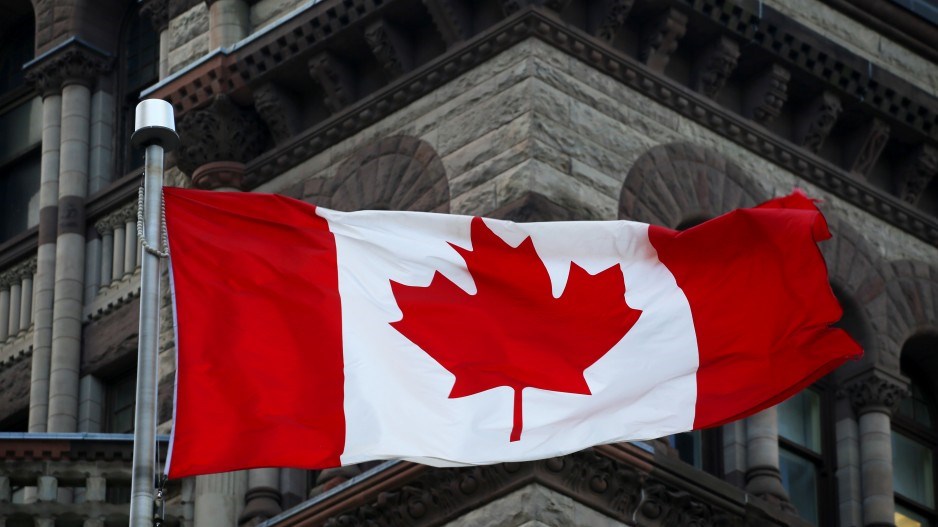While Canadians are technically a year removed from the next federal election, 2024 has provided plenty of opportunities to look at the way other countries are selecting their leaders. We have been exposed to significant media coverage of the democratic processes in Mexico, India, France and the United Kingdom, and are headed for two months of seemingly endless discussions about the state of the presidential race in the United States.
In the early stages of this year’s electoral campaign in the United Kingdom, the then-governing Conservative Party proposed the return of mandatory national service. The proposal called for all 18-year-old residents of the country to either take a full-time military placement for one year, or to volunteer one weekend a month performing community service for one year.
When we asked Canadians about this idea last month, 50 per cent supported its implementation in Canada, while 42 per cent were opposed and eight per cent were undecided. Majorities of Canadians who voted for the Liberal Party (57 per cent), the Conservative Party (55 per cent) and the New Democratic Party (NDP) in 2021 endorsed the notion of a Canadian mandatory national service.
The country’s youngest adults are keener on adopting the idea of Britain’s Conservatives (55 per cent) than their counterparts aged 35-54 (47 per cent) and aged 55 and over (48 per cent). Regionally, support for a mandatory national service is highest in Ontario (60 per cent), followed by British Columbia (58 per cent), Saskatchewan and Manitoba (54 per cent), Atlantic Canada (46 per cent), Alberta (44 per cent) and Quebec (42 per cent).
At first glance, Canadians tend to like the idea of compelling 18-year-olds to learn a military skill or assist their community. Throw in the word “conscription” – at a time when North Atlantic Treaty Organization (NATO) member countries such as Norway, Sweden and Latvia have already brought it back – and the perceptions change.
When Canadians were asked about the compulsory enlistment of adults aged 18-27 for full-time military service, 41 per cent are in favour of the idea for both men and women. Support drops for male-only conscription (31 per cent) and female-only conscription (25 per cent).
While 50 per cent of Canadians oppose enlisting both men and women aged 18-27 for full-time military service, the proportions grow to 57 per cent for male-only conscription and 64 per cent for female-only conscription. Once again, support for this change is highest among the youngest adults.
Canadians who have tuned in to the conventions of the two major American political parties this summer may have noticed the “Pledge of Allegiance,” a patriotic verse that is also recited in the United States during Congressional sessions and other government meetings.
When we asked Canadians if Canada should implement a similar directive, where lawmakers and government workers state their allegiance to the country, just over half (52 per cent) say this should be the case, while just over a third (34 per cent) disagree and 13 per cent are undecided.
The creation of a uniquely Canadian “Pledge of Allegiance” is particularly appealing to men (55 per cent), Albertans (also 55 per cent) and Ontarians (57 per cent). Conservative voters in 2021 are more likely to favour this move (64 per cent) than those who supported the Liberals (56 per cent) and the New Democrats (42 per cent).
Since 1954, America’s “Pledge of Allegiance” has been, in essence, a prayer, when the words “under God” were added after the phrase “one nation.”
Some provincial legislatures in Canada already begin their sessions with moments of silent reflection, non-denominational prayers, and/or Christian prayers.
When we asked Canadians what they would prefer to get sessions started in their provincial legislature, almost two in five (39 per cent) opt for a moment of silent reflection. Fewer express support for a Christian prayer (19 per cent) or a non-denominational prayer (13 per cent), while 22 per cent select nothing and eight per cent are not sure.
There are some significant regional and political disparities. The Christian prayer is far from being the preferred option anywhere but does best among Conservatives (28 per cent) and in Saskatchewan and Manitoba (26 per cent), Atlantic Canada (25 per cent) and British Columbia (23 per cent). Silent reflection is particularly favoured by Liberals (48 per cent) and New Democrats (43 per cent), as well as residents of Ontario (43 per cent) and Alberta (42 per cent).
The Conservatives lost the election in the United Kingdom to the Labour Party, and musings about mandatory national service ended. It is still too soon to know who will win the presidential election in the United States, but reliance on the “Pledge of Allegiance” might be one of the few elements that unite a polarized electorate.
When Canadians ponder these features, the notion of a national service that is not decidedly military resonates with half, as does the idea of an “oath” that can be recited before lawmakers tackle the people’s business.
Mario Canseco is president of Research Co.
Results are based on an online study conducted from July 24 to July 26, 2024, among 1,000 adults in Canada. The data has been statistically weighted according to Canadian census figures for age, gender and region. The margin of error, which measures sample variability, is +/- 3.1 percentage points, 19 times out of 20.

.png;w=120;h=80;mode=crop)

